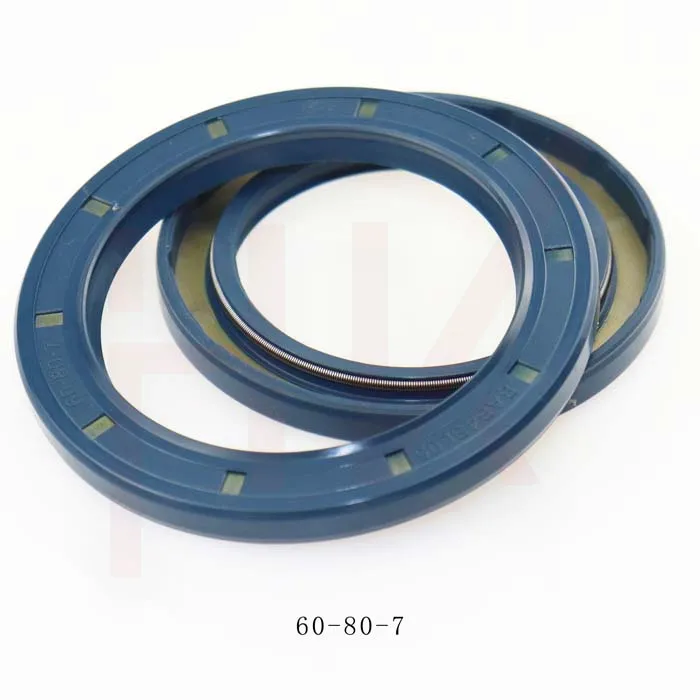Nov . 22, 2024 09:34 Back to list
cassette oil seal
Understanding Cassette Oil Seals Importance, Function, and Maintenance
Cassette oil seals, often referred to as oil seals or rotary shaft seals, play a crucial role in the automotive and machinery sectors. These components are designed to prevent the leakage of lubricants while protecting against contaminants like dirt and dust entering the machinery. With a specific focus on cassette oil seals, this article delves into their importance, function, and maintenance to appreciate their contribution to mechanical efficiency.
What is a Cassette Oil Seal?
A cassette oil seal is a circular component made of elastomeric material, commonly rubber or polyurethane. Its design includes a sealing lip that makes contact with a rotating shaft, creating a barrier that inhibits the leakage of oil or grease. The “cassette” aspect refers to the assembly's integrated design, which typically includes a metal casing that enhances structural integrity. This makes cassette oil seals ideal for applications requiring durability and resistance to various environmental factors.
Importance of Cassette Oil Seals
1. Leak Prevention The primary function of cassette oil seals is to prevent the leakage of lubricants. By encasing the lubricating oils needed for smooth operation, these seals help maintain optimal levels of lubrication, essential for reducing friction and wear in moving parts.
2. Contamination Protection In addition to retaining lubricants, cassette oil seals protect sensitive mechanical components from external contaminants. Dust, dirt, and moisture can significantly impact performance and lifespan when they infiltrate machinery. These seals act as barriers, preserving the integrity of moving parts.
3. Enhanced Efficiency Using cassette oil seals in machinery and automotive applications directly contributes to overall efficiency. By preventing leaks and contamination, these seals help maintain lubrication levels, ensuring smoother operation and reducing energy consumption.
4. Cost-Effective Maintenance The cost of replacing oil seals is minimal compared to the potential expenses incurred from machinery breakdowns due to lubrication failure. Properly functioning cassette oil seals can extend the life of machinery, ultimately resulting in significant cost savings over time.
Functionality of Cassette Oil Seals
cassette oil seal

The operational principle of a cassette oil seal is relatively straightforward. When installed around a shaft, the sealing lip compresses against it, creating a tight seal. This contact maintains the lubricant's presence while preventing it from escaping into the environment. The design of the seal, including the material composition and lip geometry, is engineered to accommodate different applications, temperature ranges, and speed.
The design of a cassette oil seal allows it to operate effectively under a variety of conditions, including high speeds and extreme temperatures. For instance, in automotive engines, cassette oil seals must withstand significant pressure and thermal stress while maintaining their sealing properties.
Maintenance Tips for Cassette Oil Seals
Maintaining the integrity of cassette oil seals is essential for optimal performance. Here are a few maintenance tips
1. Regular Inspections Periodically check for signs of oil leakage or wear around the seals. Early detection can prevent more significant issues down the line.
2. Proper Installation Ensure seals are installed correctly to avoid distortion, which can lead to leaks. The installation process should respect the manufacturer's specifications.
3. Monitor Operating Conditions Be mindful of the conditions under which the machinery operates. Extreme temperatures and aggressive chemicals can degrade seals faster, necessitating more frequent inspections or replacements.
4. Replace Worn Seals Promptly At the first sign of wear or damage, replace the oil seal to prevent further degradation of machinery performance.
Conclusion
Cassette oil seals are indispensable components that ensure the longevity and efficiency of machinery and vehicles. They prevent leaks, protect against contamination, and contribute significantly to operational efficiency. Understanding their function, importance, and the need for regular maintenance can help users appreciate the critical role these seals play in safeguarding mechanical integrity. Investing time in maintaining cassette oil seals can result in smooth operations and considerable cost savings in the long run.
-
TCN Oil Seal Metal Ring Reinforcement for Heavy Machinery
NewsJul.25,2025
-
Rotary Lip Seal Spring-Loaded Design for High-Speed Applications
NewsJul.25,2025
-
Hydraulic Cylinder Seals Polyurethane Material for High-Impact Jobs
NewsJul.25,2025
-
High Pressure Oil Seal Polyurethane Coating Wear Resistance
NewsJul.25,2025
-
Dust Proof Seal Double Lip Design for Construction Equipment
NewsJul.25,2025
-
Hub Seal Polyurethane Wear Resistance in Agricultural Vehicles
NewsJul.25,2025
-
The Trans-formative Journey of Wheel Hub Oil Seals
NewsJun.06,2025
Products categories
















